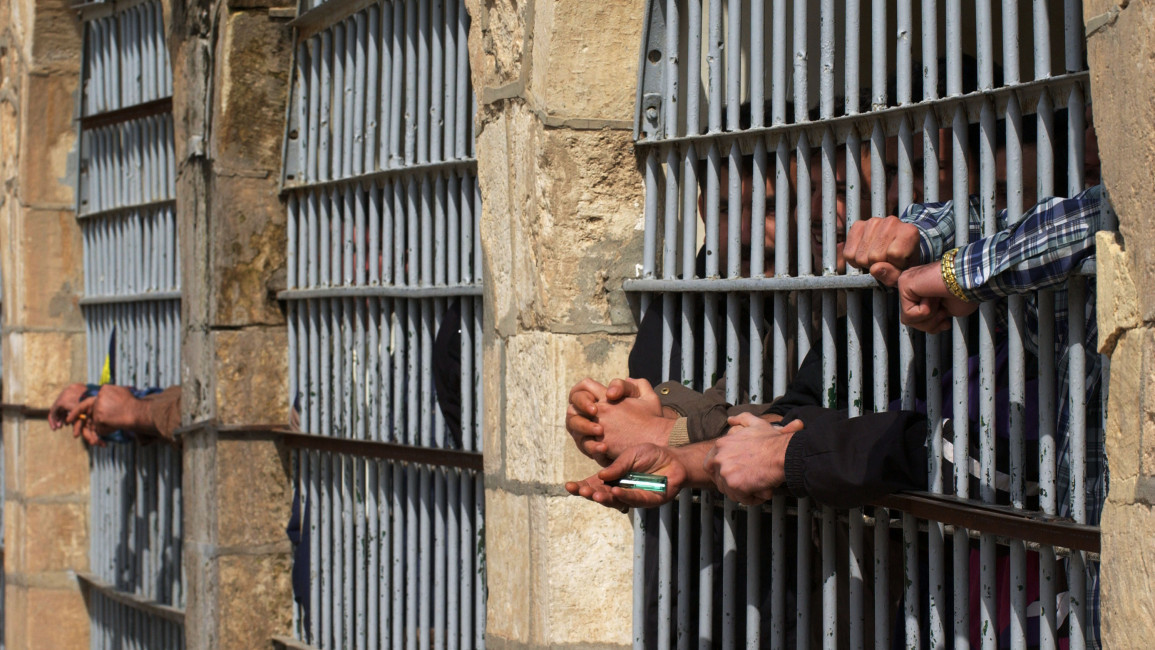Iraqi Kurdish journalist freed after three-week detention for running 'unlicensed pages'
A Kurdish journalist, detained by the Iraqi Kurdistan region security forces over three weeks on charges of "endangering the region's security", has been released on bail Wednesday after his dossier was transferred to police forces.
Rawa Burhan, 27, a Kurdish journalist from Sulaimaniyah city was arrested by the Kurdistan Regional Government (KRG) security forces on 26 November.
Arresting journalists and activists in Iraq and the northern Kurdish region has become very common, with many activists and commentators saying this is an attempt by authorities to silence critics.
"The journalist has been arrested under article 156 of Iraqi Penal Code Law 111 of 1969, as he has been running some unlicensed pages [on Facebook] that included defamations against some figures and state institutions," Karwan Anwar, head of the Sulaimaniyah branch of the Kurdistan Journalists Syndicate (KJS), said in a brief interview with The New Arab.
"We visited the journalist while he was in detention at Sulaimaniyah security, and he was in good health. The journalist was freed on bail late on Wednesday after the charges against him were changed to be tried with the code of Kurdistan region's law on the misuse of electronics. Hence his case has been transferred to police forces," Anwar added.
Article 156 of the Iraqi Penal Code 111 of 1969 is punishable by death if "[a]ny person who willfully commits an act with intent to violate the independence of the country or its unity or the security of its territory and that act, by its nature, leads to such violation."
The article has been amended by the Kurdistan region's parliament and was replaced by Law 21 for the year 2003.
"Anyone who acts or is involved in an action that endangers the security, stability and sovereignty of the Iraqi Kurdistan institutions will be sentenced with life or temporary imprisonment," reads the amendment.
According to the Kurdistan region's press Law 35 for the year 2007, journalism should be free and before taking legal actions against journalists, the Kurdistan Journalists Syndicate (KJS) should be notified.
Answering why the journalist has not been treated under the region's press law, Anwar said that the journalist did not receive a license for "his media channel" from the KJS.
"Journalists who want to work in the press and set up a website or a page on social media platforms should receive a license from the KSJ," Anwar said, indicating that a draft bill regulating digital media is pending legislation at the Kurdistan parliament.
TNA tried to reach out to the journalist, but he was not immediately available to comment. A Kurdish security spokesperson also declined to comment on the issue when contacted by TNA.
Kurdish authorities in February 2021 sentenced journalists Sherwan Amin Sherwani and Guhdar Zebari and activists Shvan Saeed, Ayaz Karam, and Hariwan Issa to six years imprisonment under Law 21.
"The Kurdistan Region of Iraq authorities must end the crackdown and immediately release all of those who have been arbitrarily detained. The authorities must also refrain from using vague and ill-defined laws to curtail the rights to freedom of expression and peaceful assembly," Amnesty International said in 2021.
"The organization documented the use of three laws that have been used to arrest and prosecute these activists, namely Law 21 on matters of national security, a defamation law and law on the misuse of electronics, all of which contain vague and overly broad definitions of crimes that are not recognized under international law," the international NGO added.


![Minnesota Tim Walz is working to court Muslim voters. [Getty]](/sites/default/files/styles/image_684x385/public/2169747529.jpeg?h=a5f2f23a&itok=b63Wif2V)




![Debris near Rafic Hariri International Airport [Getty]](/sites/default/files/styles/image_330x185/public/2176162423.jpeg?h=a5f2f23a&itok=MCSK9mkM)
![An Israeli air strike on Jabalia killed teenage journalist Hassan Hamad [Screengrab/X]](/sites/default/files/styles/image_330x185/public/2024-10/hassan%20hamad1.jpg?h=c12e0b96&itok=Rd_dyCVp)
